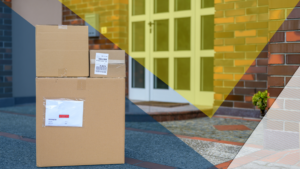Kansas City is known for many things: passionate sports fans, great barbecue, jazz music, and (strangely) for having over 200 water fountains. Behind the scenes, Kansas City has also quickly become a hub for rapid industrial development. This has spiked the need for third-party logistics (3PL) and fulfillment services around the KC metro area. With the need for more efficient supply-chain management, most companies are turning to outsourced logistics partners to help with their warehousing and fulfillment needs.
Besides being centrally located, what else has caused Kansas City to quickly become one of the most sought-after locations for warehousing and fulfillment? Let’s take a look.
The Rapid Growth of Third-Party Logistics Providers
Before looking at why Kansas City 3PL warehousing has been experiencing rapid growth, it’s important to note that the entire 3PL industry has been growing nationwide, with a 1.2% annual growth rate since 2018. This growth has been driven by many factors that are impacting the ways that businesses operate and meet demand.
One of the largest factors behind this growth is the changing landscape of consumer buying behaviors. E-commerce continues to dominate, creating expectations for companies to provide faster and more efficient shipping of products. As a result, many businesses have turned to 3PL providers for help due to their expertise in optimizing supply chain operations. Other factors, like ease of scaling to meet demand and lower shipping costs, have further incentivized these companies to work with a fulfillment partner.
Why Demand for 3PLs is Growing in Kansas City
In addition to national trends, the growth of 3PLs in Kansas City is further fueled by the city’s strong economy, strategic location, and industrial growth can be attributed to the increase of businesses looking to partner with Kansas City 3PL providers in recent years.
Strategic Location
With Kansas City’s central location in the United States, it provides the ability to reach a major part of the U.S. population in 3 days through standard ground shipping for e-commerce fulfillment needs. In addition to this, Kansas City is considered a major transportation hub, providing many transportation methods in and out of the area by air and land.
Largest Rail Center
Kansas City provides the second-largest rail hub in the entire United States—behind only Chicago. A large component of this is the Kansas City Terminal Railway (KCTR) with over 95 miles of track spanning across Missouri and Kansas. This allows for the efficient transfer of freight in and out of the city.
The Intersection Of Four Major Interstates
The Kansas City area has an intersection of four major highways in the U.S. (I-29, I-35, I-49, and I-70). This combined with the lower traffic congestion of the highways provides ground shipments to flow in and out of the KC metro area quickly, allowing for more reliable and consistent shipping times.
Kansas City International Airport (MCI)
For any air shipments, the Kansas City International Airport (MCI) boasts one of the best airports in the U.S. for air cargo. MCI ranks low for delays compared to other surrounding state airports due to the uncongested air and ground space in addition to favorable weather conditions leading to fewer cancellations and helping companies ensure their air freight will arrive smoothly and efficiently. Speaking of the airport, it boasts a brand-new single terminal, offering travelers a world-class experience in the middle of the country.
Economic Growth & Industrial Expansion
Many industries in the Kansas City region have experienced big growth in the past decade including e-commerce, food and beverage, and automotive industries. As business booms around the metro, there is an increase in demand for services that support them, such as cold and refrigerated storage and other warehousing needs. This has led to warehouse occupancy rates of nearly 90% in KC, with new construction barely able to keep up with storage demand.
Expansion of E-Commerce
The significant growth in e-commerce has driven the need for warehousing, order fulfillment, and distribution services. As online shopping becomes more ingrained in everyday behavior, more businesses need reliable logistics solutions to manage inventory and deliver products to customers promptly.
Industrial and Manufacturing Growth
Kansas City has seen substantial investments in manufacturing and industrial sectors. The establishment and expansion of factories, production facilities, and distribution centers necessitate robust logistics support for raw materials, components, and finished products.
Both automakers have invested over $1.5 billion in the Kansas City region, significantly boosting the local manufacturing industry and the need for comprehensive logistics support
Ford Motor Company and General Motors
Retail Sector Development
The retail industry in Kansas City has been expanding, with new stores and shopping centers being developed. This growth increases the demand for 3PL services to manage inventory, supply chain operations, and last-mile delivery to retail locations.
Agriculture and Food Processing
The region’s strong agricultural base and the growth of food processing industries have heightened the need for specialized logistics services. 3PL providers facilitate the transportation, storage, and distribution of agricultural products and perishable goods, ensuring timely and safe delivery.
Infrastructure Investments
Significant investments in infrastructure, such as road expansions, rail improvements, and airport upgrades, have enhanced Kansas City’s logistics capabilities. These improvements attract more businesses to the area, leading to increased demand for logistics services to capitalize on the improved transportation networks.
Healthcare and Pharmaceutical Sector Growth
The expansion of healthcare facilities and pharmaceutical companies in the region has created a demand for specialized logistics services. 3PL providers offer temperature-controlled storage, secure transportation, and compliance with regulatory requirements for medical supplies and pharmaceuticals.
Tech and Innovation Sector
The growth of technology and innovation sectors, including startups and tech companies, has increased the demand for logistics solutions that can support high-tech equipment, electronics, and components. 3PL providers offer the necessary infrastructure and expertise to manage these complex supply chains.
Business Relocation and Expansion
Companies relocating to or expanding within Kansas City contribute to economic growth and create new logistics requirements. 3PL providers help these businesses establish and scale their supply chain operations efficiently.
Several businesses have relocated to Kansas City in the past decade, contributing to the city’s economic growth and increased demand for third-party logistics (3PL) services. Notable examples include:
- Homebase, LLC – A company specializing in intelligent apartment management software, has expanded in Kansas City, creating 300 new jobs (Business Facilities).
- Walmart – Announced the construction of a $257 million case-ready beef facility in Olathe, bringing 667 new jobs to the region (Kansas Department of Commerce).
- Hill’s Pet Nutrition – Opened a new $450 million facility in Tonganoxie, generating over 100 jobs (Kansas Department of Commerce).
- Michelin – Invested over $100 million in its Junction City operations, creating 200 new jobs (Kansas Department of Commerce).
- Panasonic Energy – Broke ground on a $4 billion electric vehicle battery plant in De Soto, which is expected to create 4,000 jobs (Kansas Department of Commerce).
International Trade and Export Growth
Kansas City’s strategic location and transportation infrastructure support international trade and exports. As businesses in the region expand their global reach, there is an increased need for 3PL services to handle cross-border logistics, customs clearance, and international shipping.
Construction and Real Estate Development
The construction boom and real estate development in Kansas City have led to increased demand for logistics services to supply building materials, equipment, and furnishings to construction sites and new developments.
Why an E-Commerce Boom is Contributing to A Greater Need for 3PLs in Kansas City
The surge in e-commerce has significantly boosted the need for efficient warehousing and fulfillment services. Kansas City, with its extensive transportation network, is well-positioned to meet the growing demands of online retailers. The expansion of ecommerce has been driven by several factors:
- Increased Order Volumes: The surge in online shopping has led to higher order volumes and greater pressure on businesses to manage fulfillment efficiently. 3PLs provide the infrastructure and expertise needed to handle these increased volumes effectively.
- Demand for Faster Delivery: Consumers expect faster shipping options, such as same-day or next-day delivery. 3PLs in Kansas City, with their central location and extensive logistics pedigrees, can offer efficient and timely delivery solutions to meet these expectations.
- Complex Fulfillment Requirements: eCommerce businesses often have complex fulfillment needs, including handling a wide variety of products, managing returns, and offering customized packaging. 3PLs offer specialized services to handle these complexities and provide seamless fulfillment solutions.
- Omnichannel Retailing: Many eCommerce businesses operate across multiple channels, including online stores, marketplaces, and physical locations. 3PLs help manage inventory and orders across these various channels, ensuring consistent and accurate fulfillment.
- Scalability and Flexibility: As eCommerce businesses experience seasonal peaks (like holiday shopping) or rapid growth, they need scalable and flexible warehousing solutions. 3PLs can adjust their services and space to accommodate these fluctuations without requiring businesses to invest in their own infrastructure.
- Technology Integration: eCommerce growth has driven the need for advanced technology in warehousing and fulfillment, such as automated systems, real-time inventory tracking, and integration with eCommerce platforms. 3PLs in Kansas City invest in these technologies to offer efficient and accurate fulfillment services.
- Cost Efficiency: Outsourcing logistics to 3PLs allows eCommerce businesses to avoid the capital expenses of owning and operating warehouses. It also helps them benefit from the 3PLs’ expertise in optimizing operations and reducing costs through economies of scale.
- Returns Management: The rise of eCommerce has led to increased return rates. 3PLs provide efficient returns management services, handling the processing and restocking of returned items to streamline the returns process for eCommerce businesses.
- Global Reach with Local Expertise: Kansas City’s central location allows 3PLs to efficiently handle both national and international shipping needs. Businesses can leverage local expertise while reaching broader markets.
- Enhanced Customer Experience: As eCommerce companies strive to offer better customer experiences, 3PLs help by providing reliable order fulfillment, accurate inventory management, and responsive customer service, all of which are crucial for maintaining high customer satisfaction.
What Infrastructure Projects Have Supported the Growth of 3PLs in Kansas City?
Investments in infrastructure, such as the expansion of highways, improvements in rail systems, and upgrades to Kansas City International Airport, have enhanced the region’s logistics capabilities, attracting more businesses to utilize 3PL services.
- Improved Transportation Networks: Enhancements in highways, interstates (such as I-70 and I-35), and rail networks have increased the efficiency of transporting goods to and from Kansas City. This improved connectivity makes the region a key logistics hub, driving demand for 3PL services that can leverage these transportation improvements to optimize shipping and distribution.
- Enhanced Access to Major Hubs: Development of major transportation infrastructure, including Kansas City International Airport and freight rail terminals, provides better access to national and international markets. This makes Kansas City an attractive location for 3PLs that need to manage both inbound and outbound logistics efficiently.
- Expansion of Warehousing Facilities: The growth in infrastructure has led to the development of modern, state-of-the-art warehousing facilities. These facilities often feature advanced technology, such as automated systems and real-time inventory management, which are crucial for meeting the demands of modern supply chains and eCommerce.
- Development of Logistics Parks: Infrastructure improvements have led to the creation of dedicated logistics parks and distribution centers around Kansas City. These facilities are designed to cater specifically to the needs of 3PLs, providing ample space, advanced technology, and efficient operations for handling large volumes of goods.
- Increased Property Availability: Infrastructure development often includes the construction of new commercial properties and redevelopment of existing ones. This increased availability of suitable warehousing and distribution space provides 3PLs with more options for locating their operations.
- Technological Advancements: Infrastructure upgrades often include improvements in digital and communications infrastructure, such as high-speed internet and data centers. These advancements enable 3PLs to integrate sophisticated technology solutions, such as real-time tracking and data analytics, to enhance their logistics capabilities.
- Support for Multimodal Transportation: The development of infrastructure supporting multimodal transportation (e.g., combining rail, road, and air) facilitates more efficient and flexible logistics solutions. 3PLs can take advantage of these options to offer optimized transportation and distribution services.
- Business Growth and Economic Development: Infrastructure improvements contribute to overall economic development, attracting new businesses and increasing trade volumes. This growth boosts the demand for logistics and supply chain services, leading to a higher need for 3PL providers.
- Enhanced Regional Connectivity: Better infrastructure enhances regional connectivity, making Kansas City a key node in the national supply chain network. This connectivity supports the growth of 3PL operations by providing easier access to both suppliers and customers.
Several specific projects have enhanced regional connectivity in Kansas City, contributing to its growth as a major logistics and distribution hub. Here are some notable examples:
- Kansas City International Airport (KCI) Expansion: The expansion of KCI, including the new single-terminal project, has improved the airport’s capacity and efficiency. This development supports increased cargo handling and provides better connectivity for both domestic and international flights.
- I-70 and I-35 Improvements: Upgrades to major interstate highways such as I-70 and I-35 have enhanced regional connectivity by improving traffic flow and reducing congestion. These highways are crucial for transporting goods across the U.S. and linking Kansas City to other major cities.
- Highway 152 Expansion: The expansion of Highway 152 has improved access to key areas north and west of Kansas City. This project enhances connectivity between the city and suburban areas, facilitating better transportation of goods.
- Port KC Development: The Port Authority of Kansas City (Port KC) has invested in developing the Kansas City river port along the Missouri River. This includes improvements to the port’s facilities and infrastructure, boosting the city’s capacity for river transport and multimodal logistics.
- Kansas City Smart City Initiatives: Kansas City has implemented smart city projects, such as smart traffic signals and advanced public transportation systems. These initiatives help streamline traffic flow and improve transportation efficiency throughout the region.
- Union Station Renovation: The renovation of Union Station has not only preserved a historic landmark but also enhanced its functionality as a transportation hub. It supports rail and bus services and contributes to improved regional connectivity.
- TIF Districts and Redevelopment Projects: Tax Increment Financing (TIF) districts and various redevelopment projects in the downtown and surrounding areas have revitalized industrial and commercial properties. This development has increased available logistics and warehousing space and improved infrastructure connectivity.
- Swope Park Industrial Corridor: The development of the Swope Park Industrial Corridor has created a significant logistics and distribution hub within the city. Improved infrastructure in this area supports the growth of 3PL operations and distribution centers.
- Central Industrial District Upgrades: The Central Industrial District has seen infrastructure upgrades to support increased logistics activities. This includes improvements to roadways, utilities, and facility access.
- Crossroads Arts District Enhancements: Development and improvements in the Crossroads Arts District have fostered business growth and attracted new companies, including those in logistics and distribution.
How do Retail and Manufacturing Contribute to an Increased Need for Logistics in the KC Region?
Kansas City is home to several major retail and manufacturing hubs. These industries require robust logistics support for inventory management, distribution, and supply chain optimization, increasing the demand for 3PL providers.
Retail and manufacturing hubs in Kansas City have significantly contributed to the increased demand for 3PLs (third-party logistics providers) in several ways:
Retail Hubs
- High Order Volumes: Retail hubs, including major shopping centers and eCommerce operations, generate large volumes of orders. 3PLs are essential for managing and fulfilling these high-order volumes efficiently, ensuring timely and accurate delivery to customers.
- E-commerce Growth: The rise of online retail has created a need for sophisticated fulfillment services. Retail hubs often include eCommerce businesses that require 3PLs to handle warehousing, picking, packing, and shipping, as well as managing returns.
- Omnichannel Fulfillment: Retail hubs often involve omnichannel strategies where products are sold through various channels—online, in-store, and through third-party platforms. 3PLs provide the flexibility and infrastructure needed to manage inventory and fulfill orders across these channels seamlessly.
- Inventory Management: Retail businesses need effective inventory management to ensure products are in stock and available for quick delivery. 3PLs offer advanced inventory management systems to track stock levels, optimize storage, and reduce stockouts.
- Seasonal Demand: Retail hubs experience seasonal fluctuations, such as during holidays or sales events. 3PLs offer scalable solutions to handle peak periods, providing additional capacity and resources to manage increased demand.
Manufacturing Hubs
- Supply Chain Complexity: Manufacturing hubs involve complex supply chains with multiple stages, from raw material sourcing to finished product distribution. 3PLs manage various aspects of these supply chains, including transportation, warehousing, and logistics coordination.
- Distribution Needs: Manufacturing hubs often require efficient distribution networks to move products from production facilities to various markets. 3PLs offer expertise in managing distribution logistics, optimizing routes, and ensuring timely delivery.
- Raw Material and Component Handling: Manufacturing operations require the handling and storage of raw materials and components. 3PLs provide specialized warehousing solutions for these materials, including bulk storage and inventory management.
- Just-in-Time (JIT) Logistics: Many manufacturers use Just-in-Time (JIT) inventory strategies to minimize inventory costs and reduce waste. 3PLs support JIT logistics by coordinating precise deliveries and managing inventory levels to align with production schedules.
- Customs and Compliance: Manufacturing hubs often involve international trade, requiring expertise in customs regulations and compliance. 3PLs provide services to manage customs documentation, import/export compliance, and international shipping.
- Value-Added Services: In manufacturing, 3PLs offer value-added services such as kitting, assembly, and quality control, which are essential for preparing products for distribution and meeting customer specifications.
Other Factors Contributing to the Rise of 3PLs in Kansas City
Cost Efficiency: Businesses are increasingly outsourcing logistics to 3PL providers to reduce operational costs. Kansas City’s lower cost of living and doing business compared to coastal cities make it an attractive location for cost-effective logistics solutions.
Skilled Workforce: The availability of a skilled workforce in logistics and supply chain management is a significant factor. Kansas City’s educational institutions and training programs support the development of a knowledgeable and capable labor pool.
Technological Advancements: The adoption of advanced logistics technologies, such as warehouse management systems (WMS), transportation management systems (TMS), and real-time tracking, enhances the efficiency and reliability of 3PL services, making them more appealing to businesses
What are the Specific 3PL Services Needed in Kansas City?
For companies looking for a Kansas City 3PL, it is important to understand your needs. The most common 3PL needs in the Kansas City area reflect common services provided by most logistics providers such as:
Commonly Needed Warehousing in Kansas City
Warehousing needs in Kansas City, like in many major logistics hubs, can be influenced by several factors specific to the region. Here are some specific warehousing needs and considerations for Kansas City:
General Warehouses
- Function: Used for the storage of a wide range of products, including consumer goods, electronics, and non-perishable items.
- Features: Typically have standard racking systems and inventory management systems to handle diverse inventory.
Temperature-Controlled Warehouses
- Function: Designed for storing perishable goods such as food and pharmaceuticals, which require specific temperature conditions.
- Features: Equipped with refrigeration or climate control systems to maintain appropriate temperatures and prevent spoilage.
Distribution Centers
- Function: Focused on managing the flow of goods from manufacturers to retailers or end customers, often involving large volumes of products.
- Features: Include advanced sorting systems, automated material handling, and large docking areas for efficient loading and unloading.
Cross-Docking Facilities
- Function: Used for the quick transfer of goods from inbound to outbound transportation with minimal storage time, enhancing shipping efficiency.
- Features: Have multiple docking stations and minimal storage space, with a focus on swift movement of goods.
E-commerce Fulfillment Centers
- Function: Specialized in processing and shipping online orders, handling high volumes of individual packages.
- Features: Include advanced picking, packing, and sorting systems, along with real-time inventory management and order tracking capabilities.
Cold Storage Warehouses
- Function: A subtype of temperature-controlled warehouses, specifically for frozen goods.
- Features: Equipped with deep freeze storage capabilities and temperature monitoring systems.
Bulk Storage Warehouses
- Function: Designed for storing large quantities of goods or raw materials in bulk, often used by manufacturers and wholesalers.
- Features: Include high-capacity racking systems and space-efficient storage solutions to accommodate large volumes.
High-Cube Warehouses
- Function: Utilize vertical space efficiently to maximize storage capacity, suitable for high-density storage needs.
- Features: Characterized by high ceiling heights and specialized racking systems to optimize vertical storage.
Specialized Warehouses
- Function: Tailored to specific industries or products, such as hazardous materials, oversized items, or high-value goods.
- Features: Include specialized handling equipment, safety measures, and security systems to meet industry-specific requirements.
Bulk Distribution Warehouses
- Function: Handle large quantities of goods in bulk for industries like manufacturing and wholesale distribution.
- Features: Feature expansive floor space, heavy-duty racking, and efficient material handling systems.
Reverse Logistics Facilities
- Function: Manage the return of goods from customers to manufacturers or retailers, including processing, restocking, and refurbishing items.
- Features: Include dedicated areas for inspecting and processing returns, along with systems for managing returned inventory.
Multi-Client Warehouses
- Function: Serve multiple clients or businesses within the same facility, offering shared warehousing space and services.
- Features: Include flexible space configurations and systems to manage inventory for different clients efficiently.
Logistics Parks
- Function: Large-scale, multi-tenant facilities that house various logistics operations, often integrating warehousing with transportation services.
- Features: Offer extensive infrastructure, including multiple warehouses, transportation hubs, and value-added services.
Intermodal Connectivity
Kansas City offers several types of intermodal connectivity that enhance its role as a key logistics hub. Here are the primary forms of intermodal connectivity available in the region:
- Rail-to-Rail Connectivity: Union Pacific Railroad and BNSF Railway: Kansas City is served by major rail carriers, including Union Pacific and BNSF Railway. The city has significant rail infrastructure that facilitates the transfer of goods between different rail lines, supporting efficient rail-to-rail connectivity.
- Intermodal Terminals: Kansas City hosts several intermodal terminals where rail and truck services intersect. These facilities allow for the efficient transfer of containers between trains and trucks, enabling seamless movement of goods from rail to road transport. Notable terminals include:
- BNSF Logistics Park Kansas City (LPKC): A major intermodal facility that connects BNSF Railway’s network with trucking services.
- Kansas City Southern Railway Intermodal Facility: Provides intermodal services connecting rail to trucking networks.
- Rail-to-Air Connectivity: Kansas City International Airport (MCI): The airport connects with rail networks through intermodal logistics services. Goods can be transferred from rail to air transport, facilitating expedited shipping for time-sensitive cargo.
- Truck-to-Rail Connectivity: Loading and Unloading Facilities: Kansas City features facilities where trucks can load or unload cargo directly onto railcars. This connectivity supports efficient transfers between trucking and rail services.
- Truck-to-Air Connectivity: Distribution and Fulfillment Centers: Located near KCI, these centers manage the transfer of goods between trucks and air cargo. They support efficient shipping and receiving operations for both domestic and international air transport.
- Port and River Connectivity: Missouri River Access: While not as prominent as rail or road, the Missouri River provides access for barge transport. Kansas City’s port facilities, managed by Port KC, support intermodal connections between river transport and other modes such as rail and trucking.
- Multimodal Logistics Parks: Logistics Parks: Areas like the Swope Park Industrial Corridor and Central Industrial District integrate multiple transportation modes, offering facilities that combine warehousing, distribution, and intermodal connectivity.
- Highway and Road Networks: Major Highways: Kansas City’s location at the intersection of I-70 and I-35 enhances road connectivity. These highways link the city to key rail terminals, airports, and distribution centers, facilitating efficient transportation across different modes.
Order Fulfillment Services
In Kansas City, specific order fulfillment services often needed include:
- Pick-and-Pack Services: Efficiently selecting and packing items for shipment. This includes both single-item orders and bulk orders, with accuracy being crucial to avoid errors.
- Inventory Management: Real-time tracking of inventory levels, stock replenishment, and managing stock across multiple locations. This helps ensure products are available when needed and reduces the risk of overstock or stockouts.
- Shipping and Delivery Management: Coordination of outbound shipments, including selecting carriers, managing shipping routes, and handling different shipping methods (e.g., standard, expedited).
- Returns Management: Processing returns efficiently, including handling returned goods, restocking, and managing return logistics. This is especially important for e-commerce businesses.
- Order Customization: Handling special requests such as gift wrapping, custom labeling, and special packaging. This is often needed for direct-to-consumer and retail fulfillment.
- Scalable Solutions: Flexibility to adjust fulfillment capacity based on seasonal demand fluctuations or business growth. This includes handling peak periods like holiday seasons efficiently.
- Integration with E-Commerce Platforms: Seamless integration with online stores, marketplaces, and other sales channels to automate order processing and update inventory levels in real time.
- Data and Analytics: Providing insights and reports on order fulfillment performance, customer preferences, and inventory trends. This helps businesses make informed decisions and optimize their operations.
- Customer Service Support: Handling customer inquiries, tracking requests, and managing any issues related to orders, ensuring a positive customer experience.
- Compliance and Security: Ensuring that all processes comply with local regulations and that security measures are in place to protect both inventory and sensitive customer information.
Value-Added Fulfillment Services
3PL providers in Kansas City offer a range of value-added services to enhance their logistics and fulfillment operations. These services go beyond basic warehousing and transportation and aim to add additional value to their clients’ supply chains. Some common value-added 3PL services in Kansas City include:
- Kitting and Assembly: Combining individual items into kits or assembling products before shipping. This is often used for promotional products, subscription boxes, or custom orders.
- Custom Packaging: Tailoring packaging solutions to meet specific customer requirements or branding needs, including branded packaging, specialized wrapping, and custom inserts.
- Labeling and Barcoding: Providing custom labeling, barcoding, and RFID tagging to streamline inventory management and ensure accurate tracking and identification of products.
- Returns Management: Handling the entire returns process, including receiving returned goods, inspecting and restocking items, and managing reverse logistics efficiently.
- Quality Control and Inspection: Performing quality checks and inspections to ensure that products meet required standards before they are shipped, which helps in reducing returns and improving customer satisfaction.
- Order Fulfillment Services: Beyond basic order picking and packing, services may include handling special requests, gift wrapping, and personalized order fulfillment.
- Inventory Management Solutions: Advanced inventory management services, including real-time tracking, automated replenishment, and optimization of stock levels to reduce carrying costs and prevent stockouts.
- Cross-Docking Services: Streamlining the transfer of goods from inbound to outbound transportation with minimal storage, which can reduce handling times and speed up delivery.
- Drop Shipping: Managing the process of shipping products directly from the supplier to the end customer on behalf of the retailer or e-commerce business.
- Integrated IT Solutions: Offering integrated IT solutions, such as ERP (Enterprise Resource Planning) and WMS (Warehouse Management Systems), to enhance visibility, data accuracy, and operational efficiency.
- Customer Service Support: Providing dedicated customer service teams to handle order inquiries, resolve issues, and manage client relationships.
- Supply Chain Consulting: Offering expertise and consulting services to optimize supply chain operations, improve efficiency, and reduce costs.
- Specialized Handling: Providing specialized handling for certain types of products, such as hazardous materials, temperature-sensitive items, or high-value goods.
- Freight Management: Managing and optimizing transportation and freight services, including carrier selection, route optimization, and cost management.
Working with Nautical – A Centrally Located 3PL in Kansas City
For those seeking a reliable 3PL provider in the rapidly growing area of Kansas City that can provide for all your 3PL needs, Nautical Manufacturing and Fulfillment is the best choice. By partnering with us, you can enjoy the benefits of working with a centrally located 3PL with a new state-of-the-art warehouse, while also taking advantage of the company’s wide range of full-service supply chain solutions. From manufacturing and warehousing to fulfillment and transportation, we have you covered!




